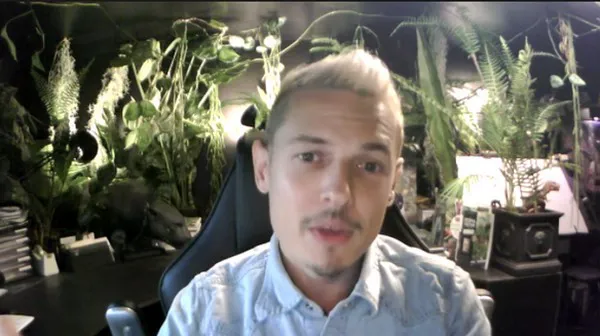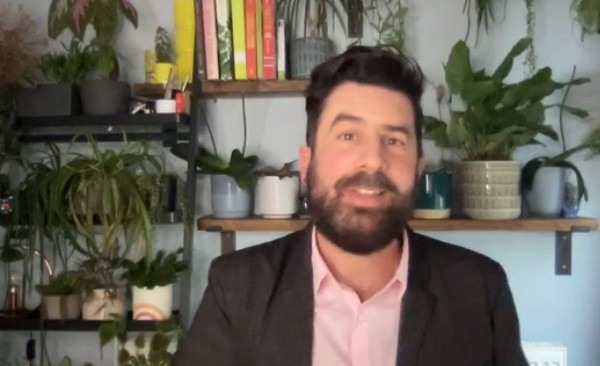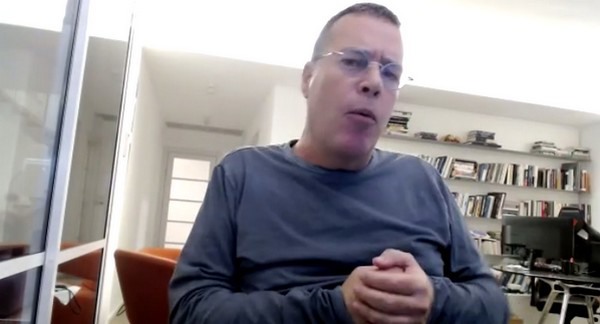Will the world eventually become so automated that human labor is no longer necessary? This was among the many topics discussed at yesterday’s (December 8th) Danziger Talks webinar. The virtual event aimed to give its attendees an insight into the future of the green industry. Three TED-style talks were given to provide a better understanding of the market, what drives sales, and what the future of horticulture will look like.
A paradox in consumption
What better way to start off a future-oriented webinar than to take a look at what next season’s horticultural trends will be. To help with that, Manuel Rucar of the Chlorosphere trends consultancy was ready to share his insights. Rucar analyses consumer trends in order to develop strategies that enhance businesses, and when it comes to horticulture consumers, there are several significant trends on the rise.
Manuel Rucar
For example, Rucar explains that the most important recent change has been the younger generation becoming the most numerous, now being 46% of global horticulture consumption. This has led to a paradox in consumption. The younger generation prefers a more natural look, whereas the older generations want a very clean and tidy garden. Yet they purchase at the same stores, so this is something for companies to take into consideration, says Rucar. “It is important to understand and cater for both consumers and to not denigrate one.”
Another interesting change has been regarding the seasonal adjustment. Climates are becoming less and less marked between the seasons, and that creates opportunities in horticulture. “For example, when the season is becoming wider, that could be interesting for garden centers, as it gives them a longer period to express what they have to offer to the consumer.”
In addition, the size of the average garden is growing, which increases the need for horticultural products. “These past years, there has been an urban exodus. Lots of people have changed their lives, and have moved from the big cities to the countryside, where they have bigger gardens.” Overall, the trends have led to positive changes in horticulture. “There is a very optimistic future ahead of us for the industry. We have lots of new customers who are in need of nature.”
Kylie Jenner presenting lilies?
How can companies further inspire their customers to get them interested in their products? Michael Perry, also known as Mr. Plant Geek, shared his views on the importance of social media to attract customers. “Customers get inspired by what they see on social media, so it can drive the demand and even the trends.” A good social media presence can be beneficial for everyone in the chain, from grower to retailer. “Retailers are looking for inspiration from growers and they then take their ideas to the buyer; a perfect 3-way collaboration.”
Michael Perry
Perry also shared some of his ideas for the future of horticultural social media marketing. “In other industries, celebrity influencing has been a significant way of promoting products. So, who will be the first big breeding company that is going to pay for a big celebrity to advertise their new variety? How soon will it be before we see an Instagram post from Kylie Jenner presenting a new lily, for example? There are many great, but perhaps less obvious, opportunities possible when it comes to social media marketing.”
A future without human labor
Lastly, Yanki Margalit, a social entrepreneur and futurist, discussed how technology can play a part in the future of horticulture. Margalit shared the story of an Israeli farmer who attempted to grow flowers in one of the hottest regions in the country. “However, growing flowers in the desert turned out to not be a profitable business. Therefore, he needed to innovate by using future technologies. While continuing to grow flowers, he added a separate endeavor to his business, raising prawns. To do so, he used genetic engineering to improve the quality, built panels above the pools to create shadow, and created a solar energy field to manufacture cryptocurrencies. By reinventing himself and using technology, he generated two new incomes for his farm.”
Yanki Margalit
With more and more automation aiding horticulture companies, what will the future of the industry look like? Margalit addressed the concept of ‘the last machine’. “We are going to automate, robotize, and use AI for more and more things. Eventually, we will create the last machine that will do everything that is necessary for our existence, and we will no longer need to rely on human labor. Solar power can give energy to the robots that grow and harvest the food for us.” Fortunately, humans will not become irrelevant. “We will always need people to create that unique experience that technology could not do. However, we can use technology as a friend to ensure that we have a bright, and floral future ahead of us.”
For more information:
Danziger
www.danzigeronline.com
